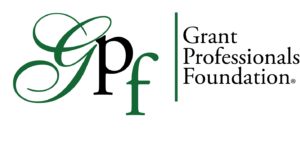By Matthew Fornoff; Community Food Bank of Southern Arizona
2016 Conference Scholar
I don’t like to label myself as a grant writer. Until I took my current position just over two years ago, I had only assisted writing a couple grants. So of course, the Community Food Bank of Southern Arizona (CFB) – an organization I’d been trying to get back into since I left my graduate school internship with them – hired me as the full-time, lead grant writer with a goal of bringing in $5 million in grant funding.
Actually, that timeline excludes a few steps, as you probably expected. A better starting point to explain is February 2007, when the U.S. Peace Corps flew me and a few others to Malawi for a two-year attempt at saving the world. Most Peace Corps volunteers are full of a noble, sacrificial energy and belief that they can truly make the world a better place. (And they often do, but usually not in the way they expect.) Generally speaking, Peace Corps volunteers implement ambitious, effective projects that make for heartwarming stories in their hometown newspapers. After two years, the volunteer leaves the tiny rural village in which they’ve been living – a community that faces deep systemic poverty, limited resources, and usually widespread chronic illnesses. Then the borehole that the volunteer helped fix breaks again. Or the school text books the volunteer acquired fail to find their way back to the school. Or the small business the volunteer helped a single mother establish doesn’t flourish. Even when you implement a successful project, you will experience some of this. And it begged the question: how can one person go into a community and truly contribute to improving the lives of the people who live there without fear of working in vain?
At least partly this is the question that led me to pursue a Master of Public Health degree. I wanted to plan and implement programs that could change behavior and systems in a lasting way. I wanted to know how to work with individuals or small groups or big groups to identify needs, resources, and solutions, and then how to put together the jigsaw puzzle of variables that would make their lives and the world a better place. During two years in academia, I studied the core tenets of public health, supplemented by focused classes in behavior change theory and program planning and implementation. After graduation, someone hired me to develop programming around local food systems in a town on the U.S.-Mexico border. This was the experience that the CFB saw and that they apparently desired in a grant writer.
Stop me if you’ve heard this one: The grant writer does 90% of the steps in the proposal development process, including all the writing, drafting the outputs and outcomes, and pulling together the budget. When the grant is awarded, program staff have limited, if any, familiarity with the information in the proposal because they had limited, if any, involvement in the process, including discussing with the grant writer how many trainings or participants should be included or where or how often activities would happen. Of course, none of us enlightened GPA members do this. We’ve either learned differently from the beginning or been reformed. For me, it was the former.
In graduate school, I learned to plan programs based on a proven behavior change theory and framework using a needs assessment that I conducted with direct input from the community. During my time in the border town, I put this into action, learning to distinguish the safe and structured academic experience from the messy, protracted real world. When I was hired as the Grants Program Manager, I could not imagine planning a program without close collaboration with at least one program staff (and usually more) and at least one finance staff (usually more). Often that team consisted of 6-8 people. The CFB has dozens of programs and subprograms and a budget in the tens of millions. In no dream world could I craft a grant proposal in a silo. Even though I had the title, I wasn’t a grant writer. I was a critical thinker, a problem-solver, an evidence-based program planner, interested in figuring out how we can solve the root causes of hunger, food insecurity, and poverty.
I was skeptical of the development team – this group of people who (in my mind) said what they needed to say or shook the hand they needed to shake to get the money in unrestricted dollars in the door. Maybe the cared about the cause; maybe they only cared about the size of the check. But did they really know what our program staff was doing each day? Did they know how to teach a Spanish-speaking single mother how to install drip irrigation in her potted tomato plants? Did they understand the struggles local farmers face just trying to make a living and, even so, how difficult it is for them to change their habits in order to make their operation more productive?
On top of that, I’m skeptical about professional associations and national conferences. I’ve been to a few that are pretty good, but usually, they’re an opportunity to get out of the office for a few days and reenergize, and maybe to visit a new city and socialize with coworkers in a different setting.
The GPA has changed my views on both these points. I’ve learned that most of us enlightened grant writers are critical thinkers and problem solvers. That winning grant awards is fun and what keeps us in business, but that the merit of the program and whether it works is almost as valuable, if not more. I’ve learned that my development team colleagues value me as a link to deeper information about our programs, and they are making stronger efforts to interact and learn directly from program staff. Further, at the risk of sounding like an advertisement, the GPA conference is the best national conference I’ve been to. Every breakout session is informative and applicable, the networking at the conference is outstanding, and the continued connections afterward help to keep that energy fresh throughout the year. Receiving the GPF conference scholarship definitely eased the burden when I went to persuade my supervisor to pay for my membership and conference expenses.
I told my supervisor recently that I have no interest in becoming a fundraiser. I understand why grant writing is part of development, but I have no desire to sell proverbial candy bars door-to-door. With grant writing, I have to really understand the problem and the need, and I get to really think about how that problem can be fixed and who can do it, and we get to come up with a concrete action plan with measurable outcomes, so we can see if we’re actually doing it. Only in the past year or so have I begun to self-identify as a grant writer now that I understand my role more clearly. And, even though my office has no windows to the outdoors, I can’t do this job in a silo. The cross-sector team that makes me an effective grant writer includes several people in my organization, and now it includes the GPA and the network I’m building through my involvement with the association.
 By TJ Hansell – Arizona Founding Chapter Scholarship
By TJ Hansell – Arizona Founding Chapter Scholarship
 By Jana Gowan – 2017 Nora Stombaugh Memorial Scholarship
By Jana Gowan – 2017 Nora Stombaugh Memorial Scholarship
 by Karen Watkins-Watts, GPC
by Karen Watkins-Watts, GPC




